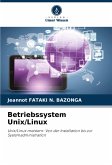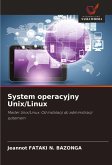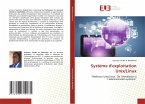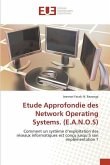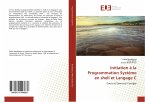The book "Système d'exploitation Unix/Linux" by Professor Dr. Jeannot FATAKI N. BAZONGA offers a complete and in-depth introduction to the use of the free Unix/Linux operating system. It is suitable for beginners who want to learn how to install and manipulate Linux with its graphical interfaces, as well as for more advanced users who want to go further with their computer and test Unix/Linux. This book covers all aspects of Unix/Linux, including comparing Windows and Unix/Linux, installing and configuring Ubuntu, installing free and open-source programs, connecting remotely to a Linux server with SSH and writing Bash scripts. It's easy to understand and gives readers the tools they need to master Linux and start using it for personal or professional purposes. This book is aimed primarily at computer science students, IT professionals and anyone interested in Unix and Linux operating systems. It covers the fundamental concepts, process management, memory, file systems and online commands specific to these systems.
Bitte wählen Sie Ihr Anliegen aus.
Rechnungen
Retourenschein anfordern
Bestellstatus
Storno



